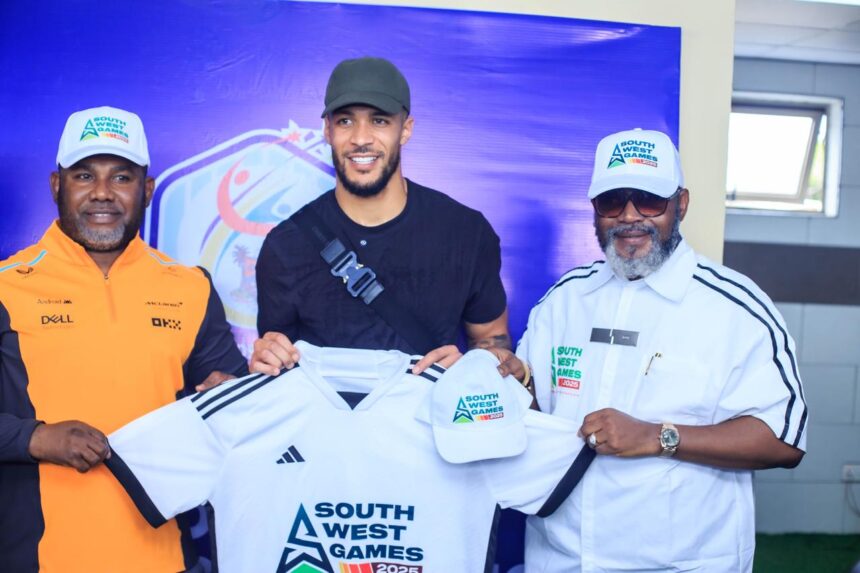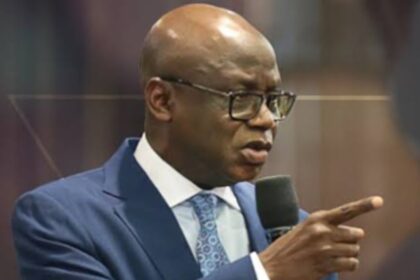l A Dawn of Sporting Glory: Tournament heralds a new era of athletic excellence
l A Dance of Colours and Heritage: From oriki chanters to Eyo Masquerades, culture takes center stage
l Fuji, Fanfare, and Future Champions: Saheed Osupa electrifies crowd as young athletes chase their dreams
The Onikan Stadium, Lagos was a cauldron of colour, sound, and spirit as the South West Games 2025 unfurled in a dazzling explosion of athleticism and culture. The air, thick with anticipation, trembled under the rhythmic pulse of bata drums, as banners swayed like proud sentinels of history.
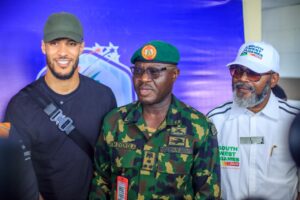
By the stroke of 10 a.m., the president of the Organising Committee, Dr. Lanre Alfred, emerged with his team, heralding the dawn of a new era in southwest sports. Moments later, the Director General of the Lagos State Sports Commission (LSSC), Lekan Fatodu, ascended the stage, his voice ringing like the call of a town crier declaring a season of conquest and glory. “We are making history today,” he declared, his words igniting the crowd like a spark to dry tinder. “It is a revolution, a renaissance of sports, a clarion call for our youth to rise, to dream, and to conquer.”
Then, as though summoned by the gods of competition, the contingents from Osun, Ekiti, Ondo, Ogun, Lagos, and Oyo emerged in a breathtaking pageant of colours—Osun’s regal gold, Ekiti’s earthy green, Ondo’s deep maroon, Ogun’s resplendent white, Lagos’s fiery red, and Oyo’s noble blue. They filed out in a synchronized march-past, proudly hoisting their flags high, their shoulders squared with a pride that could only stem from an age-old heritage of resilience and triumph.
As the procession reached its crescendo, the ancient echoes of oriki filled the air, a poetic invocation of heritage and triumph. The chanters, their voices steeped in ancestral wisdom, wove tales of valour and victory, of legends whose shadows still linger in the halls of sporting greatness. The audience swayed, enraptured, as cultural troupes followed with a whirlwind of drums and dance, the very heartbeat of the South West reverberating through every step and every beat.
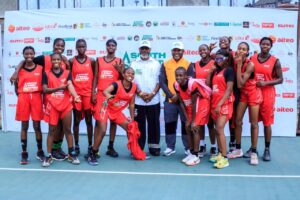
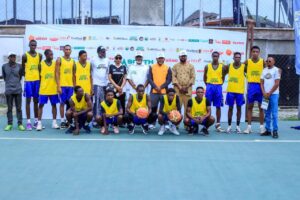
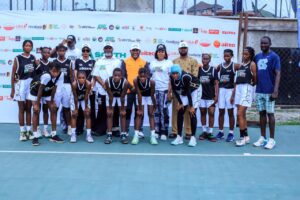
Applause rippled through the stands as fans and dignitaries watched their respective state representatives parade in magnificent unity, the sight an embodiment of regional solidarity and athletic ambition.
No opening ceremony could rival the sheer magnificence that unfolded when the legendary Eyo Masquerades stormed the pitch. Draped in flowing white and yellow ensembles, their famed regalia billowed with each spirited step they took. With measured grace and timeless agility, they danced with the aura of ancestral custodians, their staffs clashing rhythmically to the beats of bata drums. Then came the moment that set the stadium ablaze with cheers—Dr. Lanre Alfred himself joined in the dance, swaying in harmony with the revered figures of Lagosian tradition. His every step, fluid and confident, won him a standing ovation as the masquerades encircled him in an exuberant display of cultural reverence and sportsmanship.
If the oriki chanters had stirred the soul and the Eyo Masquerades had dazzled the senses, then Fuji maestro Saheed Osupa was the tempest that ignited the spirit. As he took hold of the microphone, the entire stadium quivered with anticipation. Then, like a master craftsman shaping his art, he let loose a cascade of soulful lyrics, his voice a blend of raw emotion and electrifying energy. The response was instant—spectators, dignitaries, and athletes alike surged towards the pitch, their feet moving to the rhythm of an unmistakable Lagosian groove. In that moment, it was not merely a sporting event; it was a carnival of dreams, where past, present, and future converged in a shared dance of hope and celebration.
Among the throng of dignitaries and luminaries who graced the occasion were leaders from the political sphere, captains of industry, and icons of arts and entertainment. The presence of Nigeria’s national team captain, William Troost-Ekong, added a layer of prestige to the Games, his endorsement a boost of inspiration for young athletes looking to carve their names into history. The ever-charismatic Gbenga Adeyinka the 1st held court as the Master of Ceremony, his wit and comedic timing keeping the audience entertained throughout the festivities.
Beyond the dazzling opening ceremony lay the true essence of the South West Games 2025—a platform for discovering and nurturing Nigeria’s next generation of sports icons. With 1,200 athletes and 120 officials from the six states competing across various disciplines, the tournament is geared to birth and manifest a slew of interminable benefits for the southwest sporting circuit and the nation’s athletic pool in general.
A major highlight of the competition is the Bola Ahmed Tinubu Southwest Alliance Games (BATSWAG), a sub-tournament dedicated to unearthing young talents under the age of 18 across seven sporting disciplines. The initiative, heralded as Nigeria’s answer to global youth sporting academies, promised to serve as a launchpad for future Olympians and world champions. Speaking passionately about this vision, Dr. Lanre Alfred enthused, “Great athletes are often discovered at tournaments like this. The most accomplished sportsmen and women in the world started at age-grade sports fiestas like BATSWAG. Our goal is to harness the potential of young stars early, granting them access to professional training and world-class facilities.”
Indeed, the South West Games 2025 was not merely a celebration of competition—it was a rallying cry for youth empowerment. In an era where economic uncertainty has cast long shadows over the dreams of many young Nigerians, sports stands as a beacon of hope. It offers an alternative to social vices, a chance to forge discipline, camaraderie, and excellence. “With initiatives like this tournament, Nigeria can consistently produce world-class athletes,” Dr. Alfred affirmed.
As the sun began its descent over the Onikan Stadium, casting golden streaks across the sky, it was evident that the South West Games 2025 had achieved something monumental. More than a competition, it had become a statement—of unity, of culture, and of the unbreakable Nigerian spirit. From the pulsating rhythms of Fuji music to the disciplined march-past of young hopefuls, from the regal dance of the Eyo Masquerades to the raw energy of grassroots athleticism, the Games had painted a picture of a future where sports was not just a pastime but a cornerstone of national pride and identity.
And so, as the first day of the Games drew to a close, the echoes of song and cheer lingered in the air, a promise that this was only the beginning of something far greater—a festival of strength, skill, and spirit that would shape the destiny of countless young athletes for years to come.


